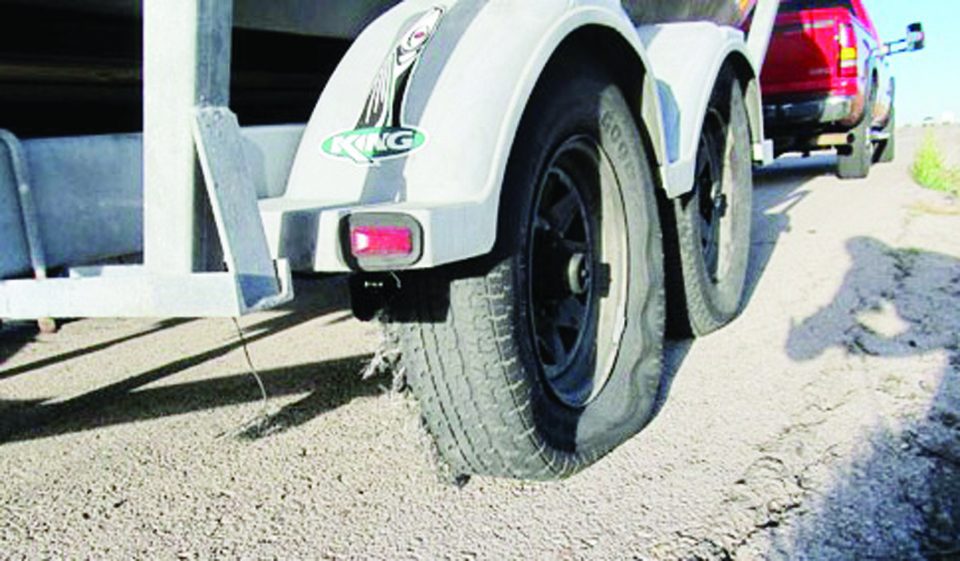From a highway blowout to a flat tire on the launch ramp, trailer tire failure is an inconvenience that can be avoided. Use the correct tires, calculate the correct load and maintain the right inflation to avoid problems.
Trailer tire requirements differ greatly from automotive or light truck tires. Trailer tires are designated “ST” for Special Trailer tires. Automotive tires are designated “P” for Passenger or “LT” for Light Truck and are not designed for trailer use. Passenger or truck tires, with their more flexible sidewalls, can result in trailer sway problems. The stiffer, heavy duty sidewalls of ST tires are designed to control and reduce sway problems. Trailer sway is dangerous at higher speeds, with top heavy loads or on vehicles with inadequate tongue weight.
Underinflation is the number one cause of trailer tire failure. Low inflation pressure elevates tread temperature, especially as speed increases. A tire can lose up to half of its air pressure and not appear to be flat. Check inflation with a quality tire gauge. Operation of a trailer tire that is 30 percent under-inflated can reduce tire lifespan by approximately 55%.
Trailers are used for one purpose, transporting loads. A major cause of trailer tire failure is overloading. It’s important to know the weight of the actual load of the payload under tow, including all the toys, equipment, gas, gear, water and the trailer itself. An over-loaded tire will produce excessive heat in the sidewall and tread which can quickly cause tire degradation or blowout. All tires are manufactured to handle specific load limits, but in towing trailers, loads are the single greatest concern. Review the tire sidewall information and the vehicle owner’s manual for vehicle load limits and proper tire inflation. Never exceed the maximum load rating stamped on the tire sidewall or the maximum vehicle load rating, whichever is less.
Any tire, no matter how well constructed, may fail when in use because of punctures, impact damage, improper inflation, overloading, or other conditions resulting from use, misuse or neglect.
– High speed towing in hot conditions degrades tires significantly.
– Best practice. Do not exceed 60 mph while towing a trailer.
– Most ST trailer tires have a maximum speed rating of 65 mph.
– Load carrying capacity decreases as heat and stress generated by higher speed increases.
– Time and the elements weaken a trailer tire.
– 3 to 5 years is the average life expectancy of a trailer tire, regardless of mileage.
– In approximately three years, roughly one-third of a tire’s strength is gone.
– After three years, depending upon storage and conditions of usage, consider replacing trailer tires even if they have tread depth remaining.
– After five years, trailer tires should be replaced in all cases.

